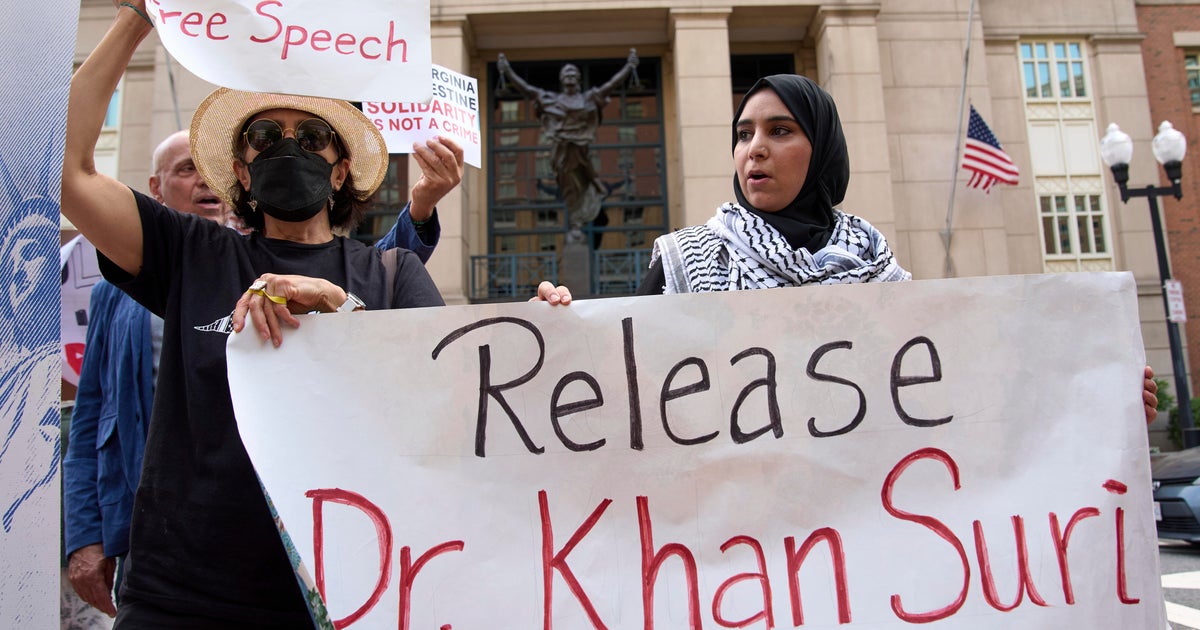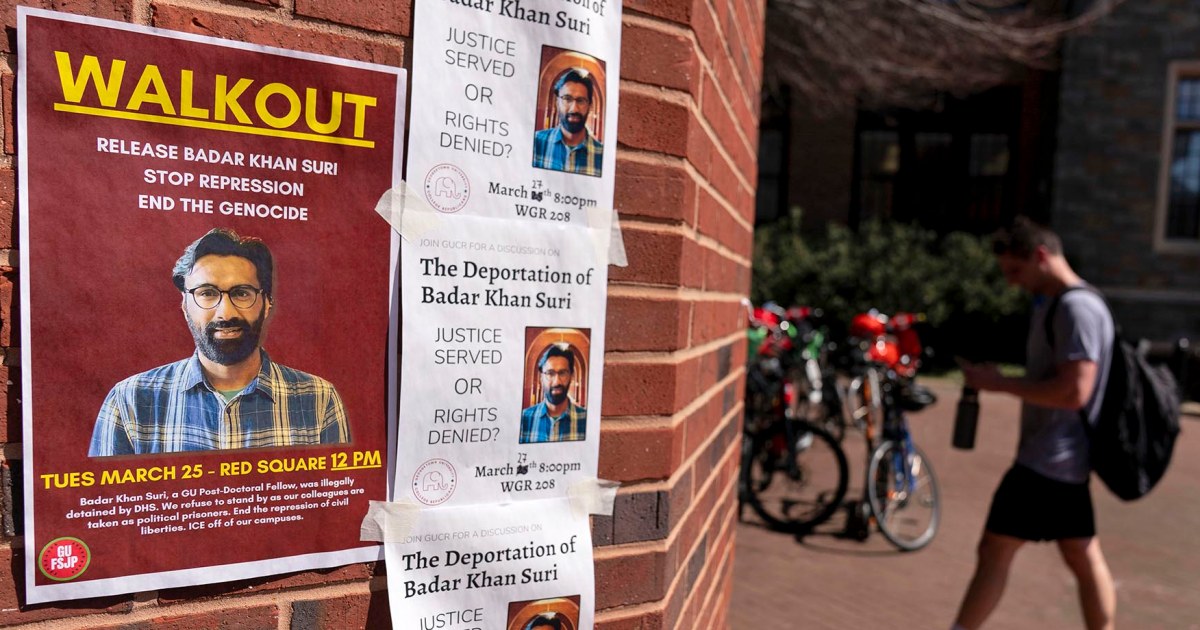Georgetown Scholar Badar Khan Suri Released From Immigration Detention Amid Controversy
Badar Khan Suri, a Georgetown scholar, was released after nearly two months in detention, citing First Amendment rights in controversial circumstances.
Subscribe to unlock this story
We really don't like cutting you off, but you've reached your monthly limit. At just $5/month, subscriptions are how we keep this project going. Start your free 7-day trial today!
Get StartedHave an account? Sign in
Overview
Badar Khan Suri, a Georgetown University scholar detained for nearly two months under Trump-era policies, was released after a federal judge found his detention violated First Amendment rights. Suri is to stay with his family in Virginia while challenging his arrest and facing deportation proceedings. Judge Patricia Giles noted the lack of evidence against Suri, underscoring concerns over free speech amid heightened scrutiny of pro-Palestinian activism. Detained with Suri were other foreign students linked to recent anti-Israel protests, as immigration authorities increased actions against students demonstrating against U.S. support of Israel.
Report issue

Read both sides in 5 minutes each day
Analysis
- Badar Khan Suri, a Georgetown scholar, was ordered released from immigration detention by a federal judge after being held based on accusations related to his pro-Palestinian speech and family connections to Hamas.
- The judge ruled that Suri's detention likely violated his First Amendment rights, emphasizing that the government failed to present evidence supporting claims of his supposed ties to terrorism.
- Suri's case highlights concerns over constitutional rights and due process, with critics arguing that the Trump administration's actions reflect a broader pattern of targeting individuals for their political beliefs.
Articles (14)
Center (5)
FAQ
Dr. Badar Khan Suri was accused of spreading Hamas propaganda and promoting antisemitism on social media, which led to his visa revocation and detention.
Dr. Badar Khan Suri was released on bail after a federal judge determined his detention was based on his protected First Amendment speech and that he posed no flight risk or danger to the community.
Dr. Suri is to continue his legal challenges while living with his family in Virginia. His case involves deportation proceedings based on his political views.
History
- 6M

 6 articles
6 articles









